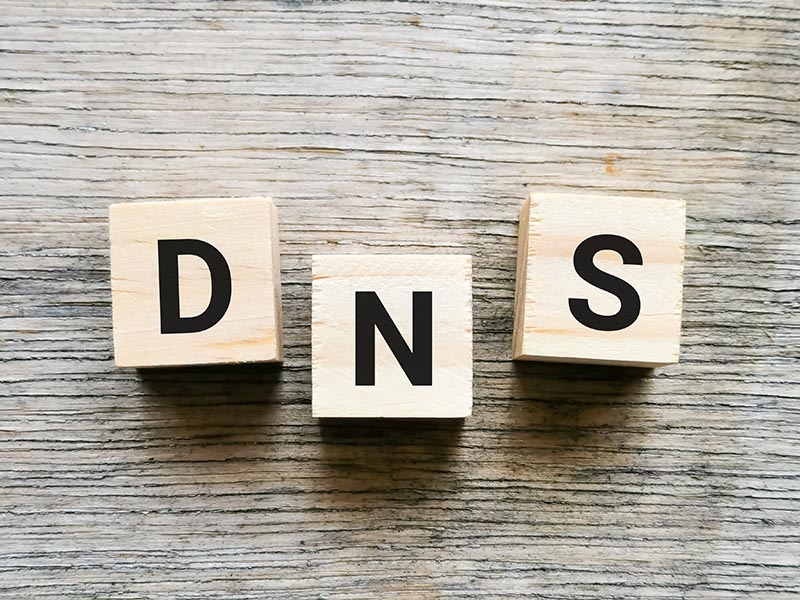In the digital era, domain registration acts as the gateway to your online identity, being crucial for establishing a prominent presence on the Internet. These unique identifiers not only define your website’s address but also reflect the essence of your brand or personal project.
Choosing an appropriate domain name can catapult your visibility, while a poor choice could plunge you into digital anonymity. This article is designed to be a powerful and informative tool that illuminates the path to successful domain registration.
Here, we’ll break down common mistakes in domain name registration, providing you with key strategies and practical tips. Our goal is to empower you with the necessary knowledge to make informed decisions, ensuring that your domain name registration choice is not only accurate but also a fruitful investment for your online presence.
Best Practices in Domain Registration
Here are 5 common practices that will make your domain registration successful and introduce your brand to the online world of current business.
1.Choosing the Right Domain Registrar
Selecting the ideal domain registrar is a critical step in laying the foundation for your online presence. Look for a reliable and reputable provider that offers exceptional customer service and an intuitive platform.
It’s essential to compare prices, but don’t be swayed solely by low fees. Evaluate the ease of domain management, options for automatic renewal, and the availability of additional services, such as web hosting. A top-tier domain registrar ensures a seamless domain registration process, transparent billing, and robust technical support.
2.Importance of Domain Privacy and Security
The security and privacy of your domain are essential to protect your personal and company information. Opt for registrars that offer privacy protection to shield your personal data from the public domain.
Additionally, look for security features such as two-factor authentication and domain transfer locking, which prevent unauthorized access and domain hijacking. Investing in these security measures is vital to safeguarding your online presence and maintaining the trust of your users.
3.Considerations Regarding Domain Extension (.com, .org, .net, etc.)
Your domain extension (TLD) communicates a lot about your website. While .com is universally recognized and easy to remember, other extensions like .org or .net may be more suitable depending on the nature of your site. For example, .org is ideal for nonprofit organizations. It’s crucial to consider how your TLD will be perceived by your target audience and how it aligns with your brand’s goals.
4.Tips on Domain Name Length and Readability
A domain name should be short, memorable, and easy to spell. Ideally, it should not exceed 15 characters to facilitate recall and avoid typing errors. Avoid excessive use of hyphens and numbers, as they can confuse and complicate accessibility. A clear and concise name not only enhances readability but also optimizes brand recognition and facilitates dissemination.
5.Strategies to Protect the Brand and Avoid Copyright Infringement
Protecting your brand is crucial in domain management. Make sure to register variations and common extensions of your domain to prevent cybersquatting.
Conduct a thorough search for registered trademarks to avoid copyright infringements, which could lead to legal disputes. Considering brand protection and intellectual property from the outset of domain registration is a proactive step to secure your online identity and avoid future conflicts.
Common Mistakes in Domain Name Registration
Let’s look at the common mistakes you should avoid when registering domain names for your brand. Read carefully.

- Ignoring copyright and trademarks leads to severe legal consequences and damages your online credibility. It is imperative to conduct thorough research to ensure that your domain name does not infringe on existing rights.
- Opting for long or confusing domain names. Can be a significant hindrance to your online presence. These names make it difficult to memorize and increase the risk of errors when typing the address.
- Neglecting domain renewal. Can result in the loss of your valuable online address. Set up alerts and consider the option of automatic domain registration renewal to prevent your domain from expiring inadvertently.
- Failing to research a domain’s history before acquiring. It can lead to unpleasant surprises. A domain with a problematic past, such as associations with spam or illicit content, can negatively affect your SEO and reputation.
- Not acquiring related variations and extensions of your main domain. Is a missed opportunity in brand management. By registering common variations, typos, and different extensions (such as .com, .net, .org), you protect your brand against cybersquatting and ensure that users reach your site even if they make mistakes when typing your address.
Technical Aspects of Domain Registration
Explore the technical details of domain registration, from DNS configuration to security and privacy policies, to optimize your online presence.
DNS and Server Configuration
The Domain Name System (DNS) is the epicenter of your online presence, acting as a vital translator between human-readable domain names and IP addresses. Accurate DNS configuration ensures a seamless user experience and optimal website loading time.
Choosing a reliable and fast DNS server is crucial, as superior server performance translates to better accessibility and security. Ensure that your DNS configuration aligns with the latest cybersecurity practices to protect your site from threats and attacks.

Importance of WHOIS Configuration
WHOIS configuration is a critical aspect of domain management, providing transparency and credibility. This public database contains essential information about the domain holder. Keeping WHOIS details up to date is vital for legitimacy and effective communication.
However, it is also crucial to balance transparency with privacy. WHOIS privacy services can conceal personal information, protecting you against spam and potential identity theft, while still maintaining integrity and trust in your domain registration.
Considerations on Domain Transfer
Domain transfer is a delicate process that requires consideration and care. Before transferring, check the terms and conditions to avoid surprises regarding fees or restrictions.
Ensure that all WHOIS details are up to date and that the domain is not locked for transfers. Communication with both your current registrar and the new one is crucial for a smooth transition. A well-executed domain transfer ensures continuity of your online presence without service interruptions or data loss.
Domain Name Management
- Consolidate and monitor multiple domains centrally for efficient management and a consistent brand strategy.
- Activate automatic domain renewal to ensure domain continuity; actively monitor to prevent hijacking or inadvertent expiration.
- Use domain-based email addresses to project professionalism and strengthen your brand identity and credibility.
In conclusion, domain registration is a crucial process that defines your digital identity. By following best practices and avoiding common errors, you can ensure a domain that reflects your brand and facilitates your online growth.
This article provided a step-by-step guide to domain registration, equipping you with the knowledge needed to make informed and strategic decisions on your digital journey.

Ready to establish a striking and memorable online presence? At Force Domains, we are committed to helping you make the perfect domain registration for your project or business.
Work with us and discover a range of intuitive and secure options that will allow you to stand out in the digital world.
Join Force Domains today and take the first step towards online success. Contact our team and let’s start building your digital future together!
Frequently Asked Questions
1.How long does the domain registration process take?
The domain registration process is typically quick, completing in a matter of minutes once the name is chosen and payment is made.
2.Can I transfer my domain registration to another registrar?
Yes, you can transfer your domain registration to another registrar. This process usually requires an authorization code and may take several days.
3.What happens if I don’t renew my domain registration on time?
If you don’t renew your domain registration on time, your domain may become inactive and eventually be released for others to register.

